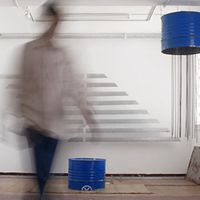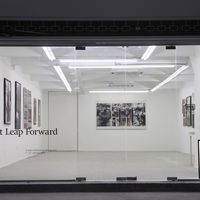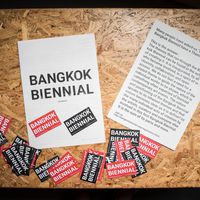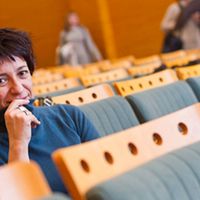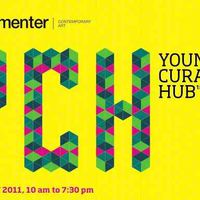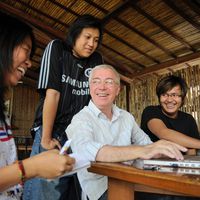In conversation with Prateek and Priyanka Raja | Experimenter | Kolkata, India
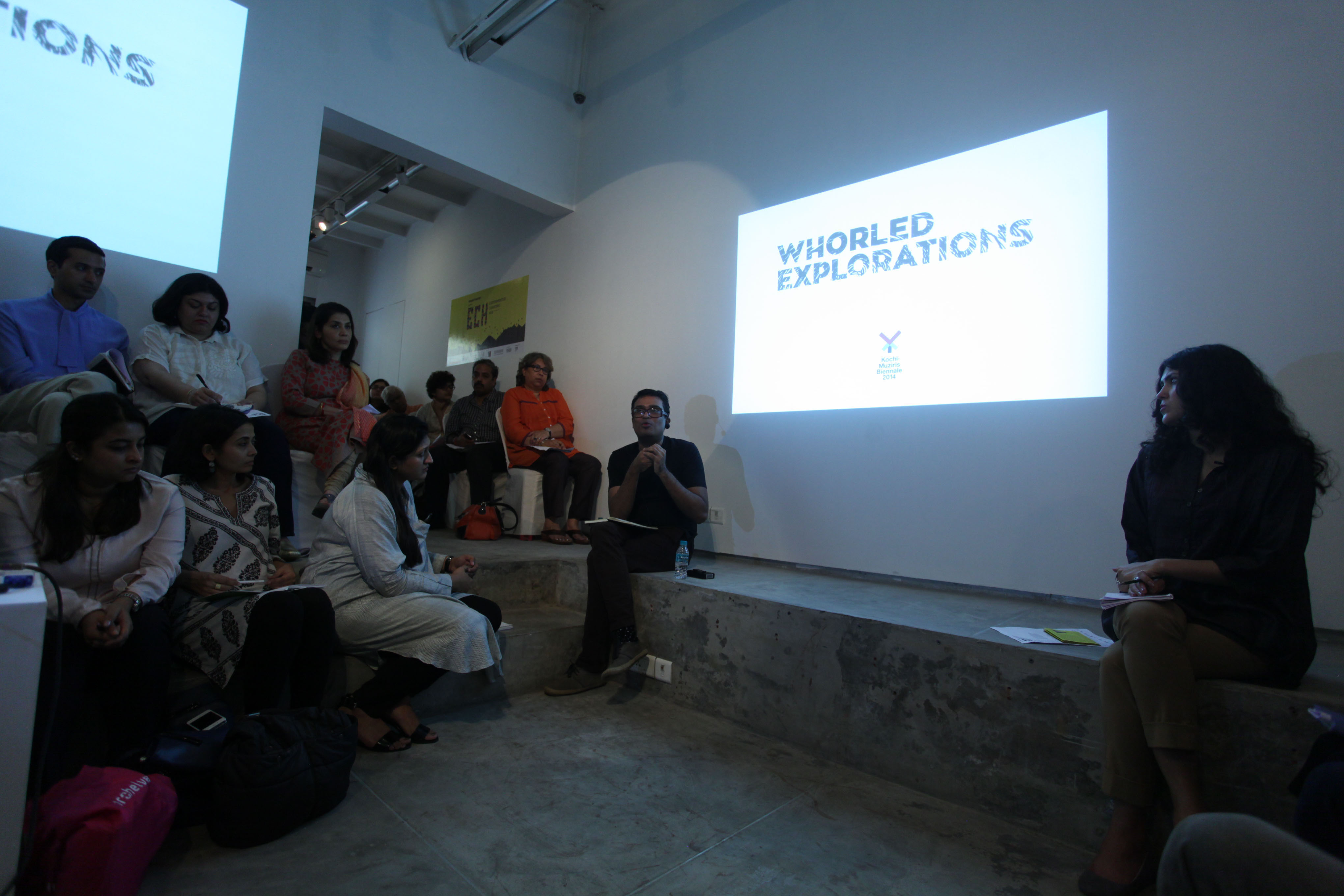 ASEF culture360 contributor David Fernández interviews Prateek and Priyanka Raja, co-founders of Experimenter, a multidisciplinary art space in Kolkata, and organizers of Experimenter Curators’ Hub (ECH), a platform to develop and sustain discourse on curatorial practice and exhibition making through critical discussion and debate.
ASEF culture360 contributor David Fernández interviews Prateek and Priyanka Raja, co-founders of Experimenter, a multidisciplinary art space in Kolkata, and organizers of Experimenter Curators’ Hub (ECH), a platform to develop and sustain discourse on curatorial practice and exhibition making through critical discussion and debate.[caption id="attachment_64548" align="aligncenter" width="620"]
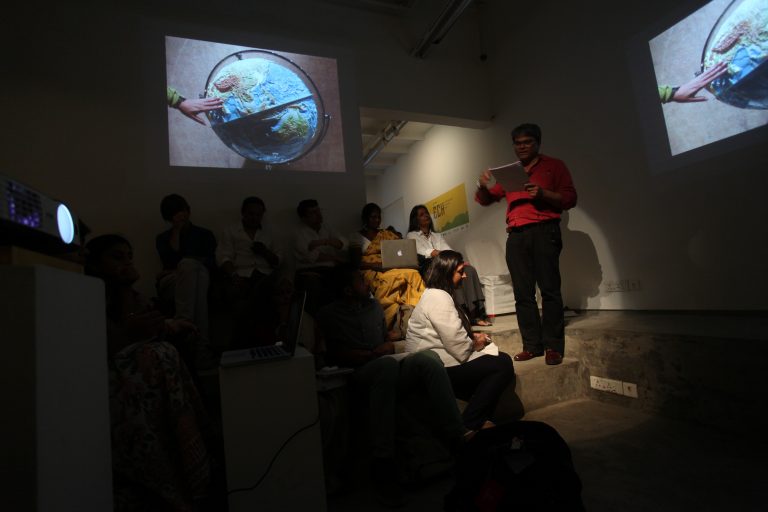 Shuddabrata Sengupta ECH 2014[/caption]
Shuddabrata Sengupta ECH 2014[/caption][caption id="attachment_64547" align="alignright" width="358"]
 Priyanka and Prateek Raja - Founders of ECH[/caption]
Priyanka and Prateek Raja - Founders of ECH[/caption]David Fernández: What motivated you to start promoting and showcasing contemporary arts in Kolkata?
Prateek and Priyanka Raja: Kolkata is a city in India that stands out from the rest because it has been the cultural capital of the country for decades. However over several years, Kolkata has remained a city rooted to its own history, somewhat closed to the outside world and an entire wave of modernity has passed by. At many levels and by many people it is not considered to be the forerunner in the arts any more. Not for us though. We wanted to bring to the city a contemporary international programme of visual arts that the city deserved and something that was important to show in Kolkata.
DF: What did you set out to achieve when you co-founded Experimenter. How did you make it happen?
PR / PR: Experimenter has always aimed to hold a mirror to the current times and find a way to reflect on what is around us. The objective always has been to show an active, responsive and incisive program of contemporary art that makes the viewers reflect on what surrounds us every day. The idea took shape from both our experiences in our early twenties when the country began to undergo several changes and we felt it was important to present the work of artists who were capturing these moments in their practice.
The artists we work with made it possible. The kind of minds we interact with daily, makes us see the world with new and renewed lenses. We planned exhibitions with our artists and took time to develop those exhibitions and present them in a meaningful holistic manner. In addition to the critical acclaim that these exhibitions brought, new dialogues and possibilities for alternatives began to emerge and this remains the most fulfilling aspect of our work.
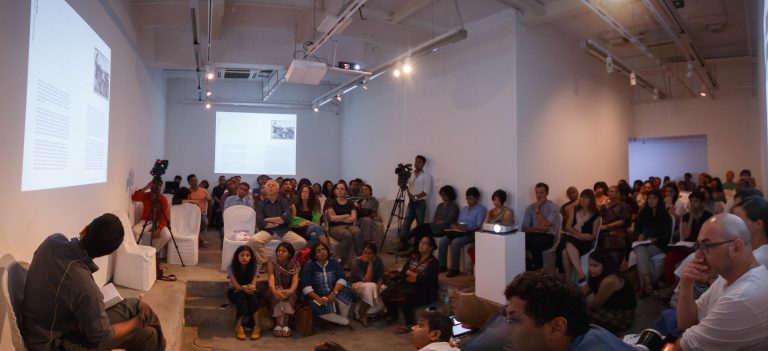 DF: How have your aims/expectations changed since you founded your art platform?
DF: How have your aims/expectations changed since you founded your art platform?PR / PR: Experimenter, as the name suggests is an incubator for new things and experiences, but we are highly focused on what we do, even if it involves experimentation. A lot seems to have changed for the external world when one looks at Experimenter. Personally I feel our exhibitions are stronger over the years, we are able to forge relationships with institutions and curators at a much faster pace in the increasingly global world, we are able to place the work of our artists in collections that have global significance and we are able to responsibly manage the careers of some of the finest artists in the world.
Having said that, our core objectives are essentially the same since we started. We are interested in representing the careers of artists who are able to capture the current moment of the contemporary world that we live in. The programme keeps the artistic practice at its centre and presents an experimental, active and challenging body of work to the art viewing community. We continue to push boundaries that we have set for ourselves and through the work of our artists, ask questions that could be uncomfortable and even confrontational at times.
[caption id="attachment_64543" align="alignright" width="381"]
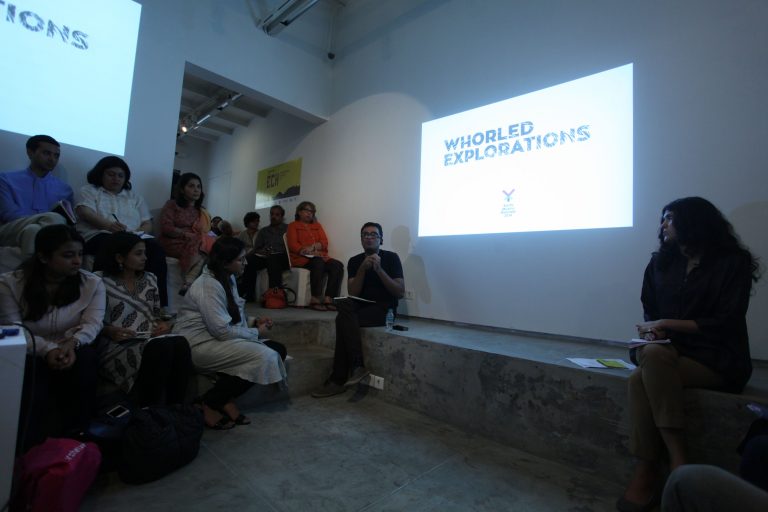 Jitish Kallat @ECH 2015[/caption]
Jitish Kallat @ECH 2015[/caption]DF: How is the public in India and Kolkata reacting to the latest contemporary arts developments?
PR / PR: The art viewing community in Kolkata is keen, curious and open to seeing things that are out of the ordinary. Experimentation is at the core of our work and I think there is a viewership in Kolkata and in India that appreciates it as well as embraces it. However a programme like Experimenter is bound to raise questions some of which could be uncomfortable and hopefully stir debate and further dialogue. There is an openness for this kind of work, but there is a steadily growing presence of radical elements that threaten the possibility of self reflective and often critical commentary. However, Experimenter continues to push towards an open and more discursive programme that allows a healthy conversation. I feel there is a strong reception for such work.
DF: What are your plans for the future of Experimenter, do you have any specific goals you would like to reach in the future?
PR / PR: We want to continue to focus on what we believe in and supporting practices of artists whose work we show. We take small steps towards our ambitions but always keeping in mind our work at Experimenter is central. For example, we started Experimenter Books last year – our artists book publishing arm of the gallery. Again it’s focused on art and the form of the book.
DF: What would you say has been the biggest thing that the development of Experimenter have taught you about India?
PR / PR: That all it takes is a deep belief in a vision that is large enough and deep enough to dive into with all that you have and that with careful planning and keeping one’s eye constantly on that vision, anything is possible to achieve. This is true anywhere in the world. Not just in India.
[caption id="attachment_64548" align="alignleft" width="366"]
 Shuddabrata Sengupta ECH 2014[/caption]
Shuddabrata Sengupta ECH 2014[/caption]DF: What is Kolkata's art & cultural scene like nowadays? How would you describe Kolkata and its creative community?
PR / PR: I think Kolkata has a vibrant art and culture scene. It is multi-faceted, inclusive and one of the only few places in India where audiences are genuinely interested in art for art’s sake. There is a very strong performing arts scene, classical music and dance scene, and a very potent literature scene too.
DF: Can you tell me more about your curatorial programmes, especially about the Experimenter Curators’ Hub?
PR / PR: The Experimenter Curators Hub was initiated out of a crucial need to critically discuss and debate curatorial practices across the world, to learn, converse and thereby possibly throw open possibilities of understanding what lay behind significant contemporary exhibition-making. It offered an opportunity to pause, a punctuation mark of sorts, to reflect upon curatorial practices and delve slightly deeper into finest minds in contemporary visual arts globally. These have remained the ethos and the core fundamentals upon which the curators hub continues to exist.
We have to recognise that the art infrastructure is and continues to remain abysmal in our country. In the absence of the same it is crucial that private organisations in whatever their capacities fill that void in the interim, in the larger interest of the social and cultural fabric of the nation. We are very happy to take this lead and are hugely indebted to all the partners who enable this to happen. We started with a simple idea, a basic need to discuss curatorial practice in India and to be able to bring to the country some of the most influential minds in contemporary practice we had access to. They are important for us as individuals to make accessible that growing pool of people, first to our own city and to the rest of the country. Personally it is a way of going to school for us every year, where we are just participants to the discussions like all other participants and equally keen to know how and what informs the conceptual frameworks of what curators do and to share that knowledge in an intense hub-like huddle over 3 days.
The Experimenter Curatrors’ Hub is a serious focused reflection on contemporary curatorial practices. Having said that the ECH has expanded its scope and reach manifold over the years and its impact is felt not only in the region but the world over. Through the years we have built archives of conversations that are freely available to access. These become resource for future generations.
The hub attracts people from all over the world, for the three days that it is held. It remains to be a unique, dialogical conversation-led initiative that is intimate.
To find out more about Experimenter, please visit: http://www.experimenter.in/
Similar content
06 Jul 2018
19 Jul 2016
from - to
15 Jul 2011 - 16 Jul 2011

